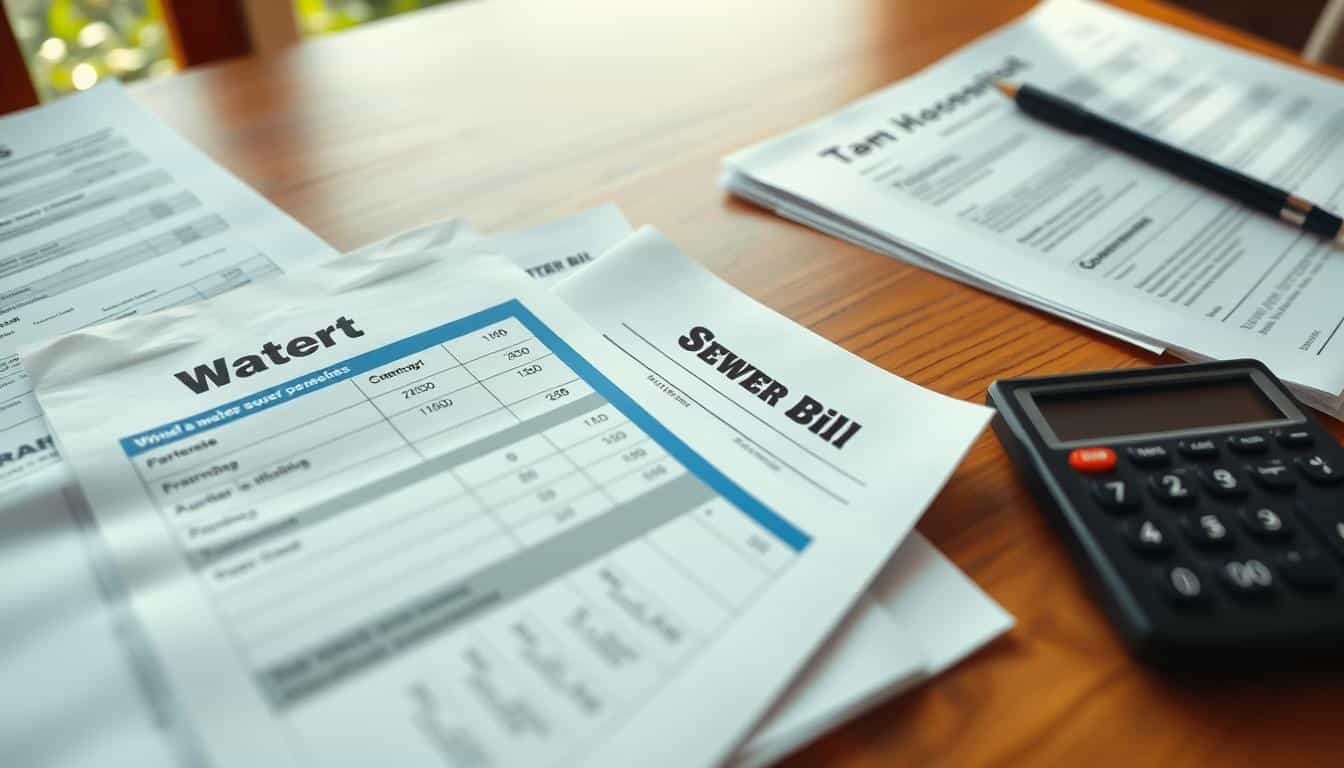Every year, as tax season comes, people in the U.S. wonder: can you deduct water and sewer bills? The answer isn’t simple, but it’s key to understand these deductions. Knowing this could make your utility bills a chance to save money on taxes.
Whether you own a home, rent, or work from home, knowing about IRS deductions for utilities is important. This part will help you understand what you can deduct and how to use tax benefits. As we explore this, staying informed and ready is key to making the most of your taxes.
Key Takeaways
- Understanding the eligibility of water and sewer bills can lead to significant tax savings.
- Not all utility bills qualify; knowing which ones do is crucial for effective tax planning.
- Homeowners and renters alike should keep track of their utility payments for potential deductions.
- Utilizing IRS guidelines can help demystify the deductibility of utility costs.
- Both direct and indirect utility costs may come into play when claiming deductions.
Understanding Tax Deductions for Utilities
Tax deductions can greatly change your financial situation, especially with utilities. Knowing what expenses you can deduct can help you save on taxes. It’s key to understand the rules to get the most out of your utility deductions.
What Qualifies as a Tax Deduction?
It’s important to know if your utility bills are deductible. This depends on if they’re for business or personal use. If you work from home, some of your utility costs might be deductible. For example, part of your electricity bill could be deductible if your home office meets certain criteria.
Types of Utility Bills You Might Consider
Several utility bills could be deductible:
- Electricity
- Gas
- Water
- Sewer
- Internet and cable bills (if used for business purposes)
But not all utility bills are deductible. It’s important to keep detailed records of your usage. Landlords can deduct utility costs for rental properties, which are considered operating expenses. This includes gas, water, and electricity, making it crucial to separate personal and business use.
Are Water and Sewer Bills Tax Deductible
Figuring out if you can deduct water and sewer bills is tricky. It’s important to understand the criteria for deductibility to see how these costs affect your taxes. Usually, the IRS doesn’t let most people deduct these bills. This is because they don’t directly help with making money.
The Criteria for Deductibility
To get deductions, your expenses must be closely tied to your business. Water bills that are not specifically for your business property are not deductible. But, some costs like maintenance or interest might be deductible if they help make money. Without the right proof, you might not get the deductions you need.
Explaining Direct vs. Indirect Costs
Knowing the difference between direct vs indirect costs is key. Direct costs are expenses that directly help your rental property make money. For example, fixing things up for your tenants is a direct cost. Indirect costs are broader and not directly linked, like some administrative fees. Knowing this can help you figure out what expenses you can deduct.
Deductions for Home-Based Businesses
Running a business from home can offer many tax benefits. The home office deduction is a big one. It lets you subtract some living costs from your business income. This makes working from home more affordable.
Some common deductions include heating and electricity bills. Knowing about these can lower your taxes a lot.
Utilizing the Home Office Deduction
To get the home office deduction, your work area must be only for business. If you use a spare room for work, it can’t be used for anything else. You can also deduct part of your utility bills, like for heating and electricity, as utility deductions for business.
The simplified method lets you deduct $5 for each square foot of your office, up to 300 square feet. This makes it easier to figure out your deductions.
Percentage Allocation for Mixed-Use Spaces
Many people work from home in spaces used for other things too. If your office is also a guest room or family area, you need to figure out how much is for business. You can do this by comparing your home’s total square footage to the business area.
Remember, you can only deduct the business part of each utility cost. Keeping records of these allocations is important for tax season.
Deductions for Rental Properties
Being a landlord can be like trying to herd cats. But, knowing about rental property deductions is key to making more money and paying less in taxes. You can deduct all utility costs like water, gas, and electricity if you pay for them. It’s important to keep good records, as they might be needed if the IRS asks for proof.
There are many other deductions you can take advantage of. You can deduct costs for advertising, cleaning, repairs, and even management fees. If you have enough deductions, your taxable income could drop a lot. For example, $25,000 in deductions could cut your taxable income from $50,000 to $25,000. That’s a big financial win.
But, remember, you can’t deduct personal expenses. So, it’s crucial to keep your personal and rental expenses separate. This not only helps you follow the rules but also ensures you get all the deductions you’re eligible for. Knowing these details can help you save a lot of money.








